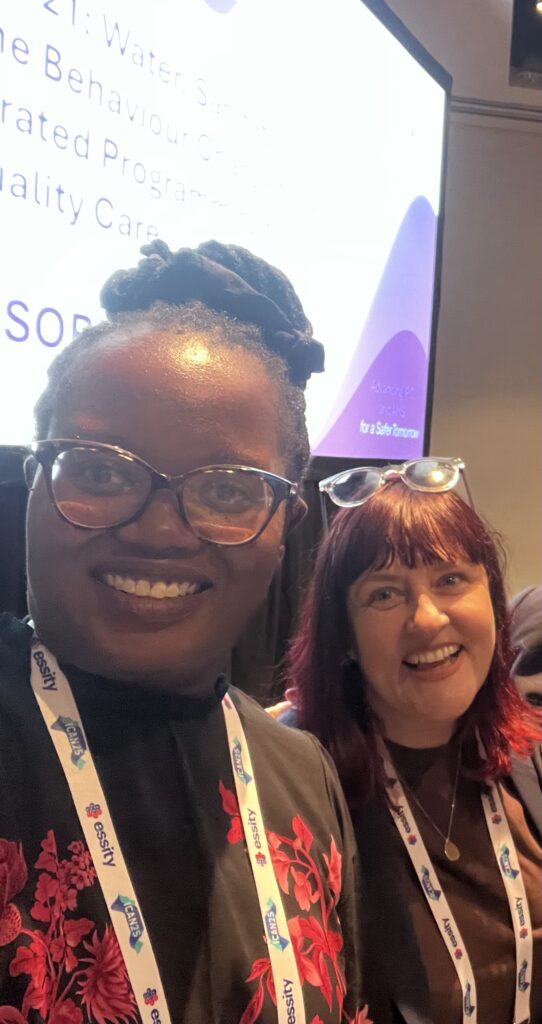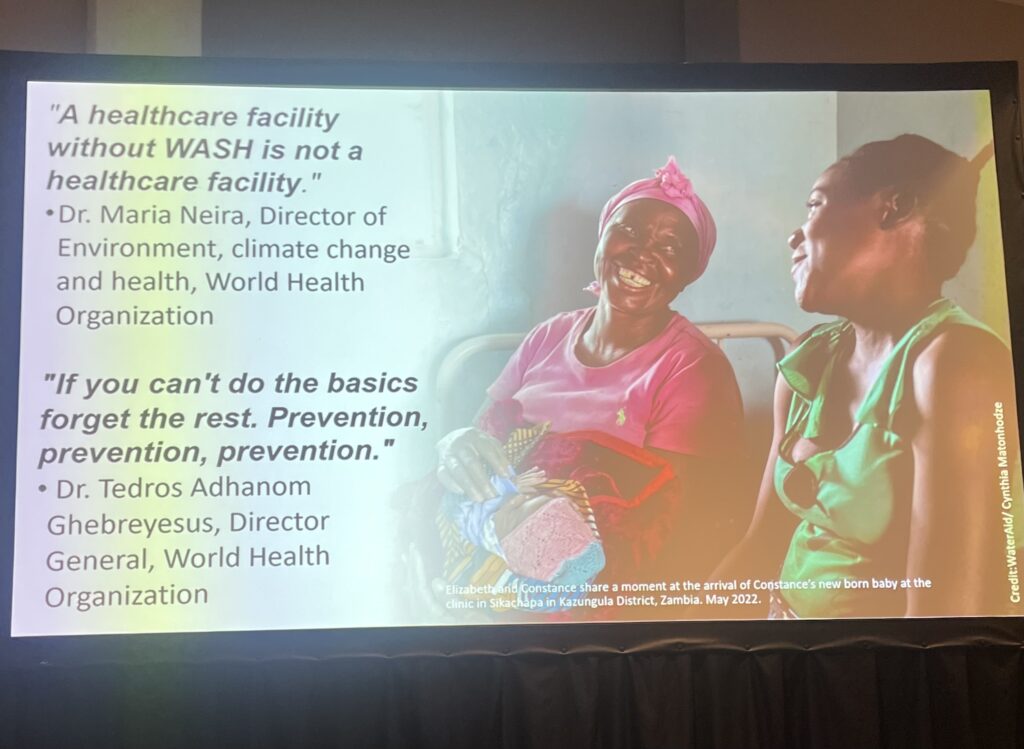The reports telling me about the global or the regional status of insufficient, quality water, sanitation and waste management services and hygiene (WASH) measures in healthcare are starting to mount up on my bookcase, let alone the scientific articles. Most of these tell me that WASH is critical to achieving effective infection prevention and control (IPC) programmes and interventions, as well to reduce the burden of antimicrobial resistance (AMR) and these efforts are to be commended. I know the effort, passion and commitment that goes in to them.
And it makes sense. Many people in countries that are classified as low or middle income, or least developed, cannot be cared for safely when they receive health care due to a lack of WASH and they therefore suffer unnecessarily. Many die. That’s what the reports and the studies on my bookcase tell me. And high-income countries are not immune to WASH issues, particularly given the highlighted climate crisis, and often ageing hospitals and systems.
But there appears to be a disconnect somewhere.
We are part of the Hand Hygiene For All initiative and as a group we recently briefly reviewed existing promotional WASH and AMR resources. The group had a feeling that a two pager issued by the World Health Organization (WHO), unicef and WaterAid in 2020 was still useful as a tool for highlighting key facts and figures on WASH, IPC and AMR.
The Hand Hygiene For All initiative has been around now since the covid-19 pandemic times and it includes a number of global organizations, committed to working together in solidarity on this issue. As such, discussions on what might be done to further promote WASH as part of the AMR agenda ensued. Is this necessary, how might it be done, do people think it is important?
In order to find out more about the appetite for further resources on this issue and using the hook of the Infection Control Africa Network (ICAN) congress in Cape Town (30 June – 2 July 2025), an idea was formed to issue a short survey prior to this. The survey questions were:
| Who has the overall responsibility for WASH? Who has the overall responsibility for AMR? Do guidelines or national action plans on AMR in your country feature WASH or hygiene objectives? Are you aware of where to find information on the status of WASH in your country? Are you aware of where to find information on the burden of AMR in your country? To what extent do you feel WASH should be prioritised in efforts to prevent AMR? Do you think new resources promoting WASH in support of the AMR agenda would be useful? What do you think the focus of key messages within new resources should be for the prevention of AMR through WASH efforts going forward? What type of resources do you think would support efforts strengthen the role of WASH in helping prevent AMR? In terms of new resources, who should these resources be targeted at? Who do you think should lead on the development and dissemination of the resources? Who do you think could and should drive WASH improvements to support AMR in countries going forward? |
Summary of survey results:
- Of the 64 responses, most noted that Ministries of Health are responsible for WASH and AMR. But that’s not actually always the full story. Ministries of Health and Population, Ministries of Water, Ministries of Environment also play a role in sustainable water supplies for example, as we know from many countries.
- Most people thought that their AMR guidelines or action plans featured WASH objectives. But do we really know how many of the 177 AMR national action plans (NAPs) that exist on the WHO web pages (as at June 2025), some published as early as 2013, really outline the current WASH activities that will reduce the AMR burden?
- 90% thought that WASH should be prioritised in efforts to prevent AMR and 92% thought that new resources promoting WASH in support of the AMR agenda would be useful, citing policy briefs and social media as some of the important ways to do this, among others.
- Interestingly, WASH facts and figures rated the lowest when asking what the focus on messages should be going forward, with the relationship between WASH and AMR, the necessary healthcare actions and tools and resources for taking action scoring higher.
- Global organizations and governments were still deemed the important entities to take this agenda forward with resources targeted at pretty much everyone including healthcare workers and the public.
At the ICAN congress, it was a pleasure to present the results and further discuss the topic during a WASH session, where Natasha Mwenda from WaterAid joined to share a country example. The case for WASH and the need for collaboration in Malawi in particular was highlighted.

Information was gathered from a small number of African countries in attendance at the session:
- Interestingly no one in the audience had seen the two pager from WHO, unicef and WaterAid! We are not aware of any web stats at this time showing how much this two-pager is used but dissemination strategies and their evaluation are critical in promotional and improvement efforts.
- Most in attendance noted that they have WASH guidelines and that they have AMR guidelines or action plans. Interestingly, most were unsure if AMR guidelines/action plans feature WASH/hygiene objectives, further highlighting the lack of true insight into the available current action plans.
- Resolutely – people think that there is still a need to highlight the role of WASH in helping prevent AMR
- People weren’t sure of the exact approach to take to promote WASH and AMR, but noted that the language likely needs to change and needs to be clearer to make sure we can reach all audiences, including Governments.
No doubt there is a lot going on to make improvements happen, including the use of WHO’s WASH FIT, and an unique IPC/WASH training package from WaterAid, and we are glad to be part of the development of many of these much needed resources.
But are any of these efforts truly showing that the convergence between WASH and IPC is making a difference to AMR? In a 2025 global report on the implementation of WASH FIT, when asked “Is there any thematic focus to the WASH FIT roll-out, including for example, AMR?” – no responses featured a focus on AMR.
A disconnect definitely remains.
